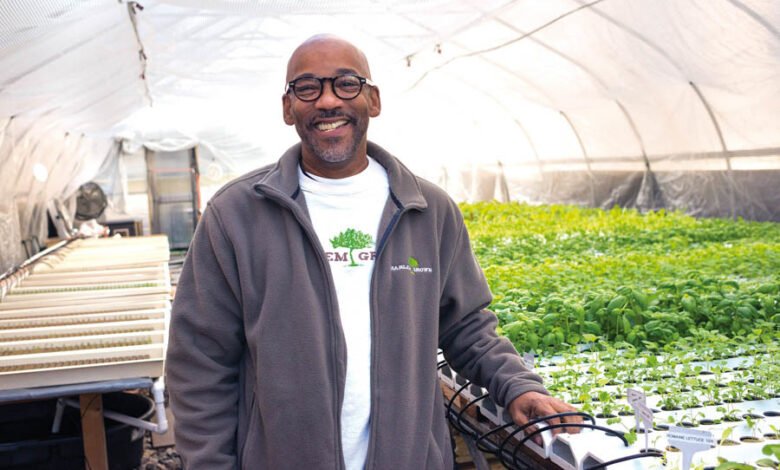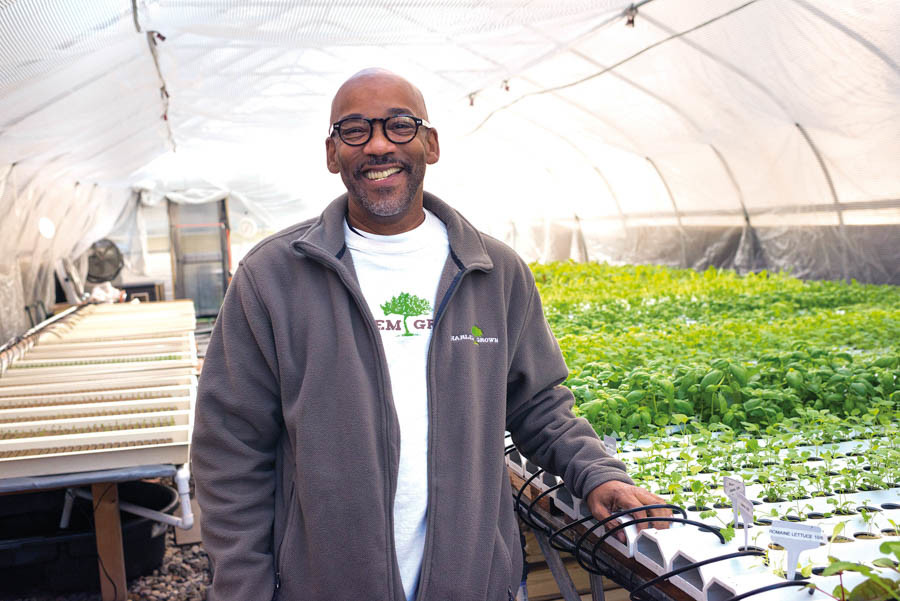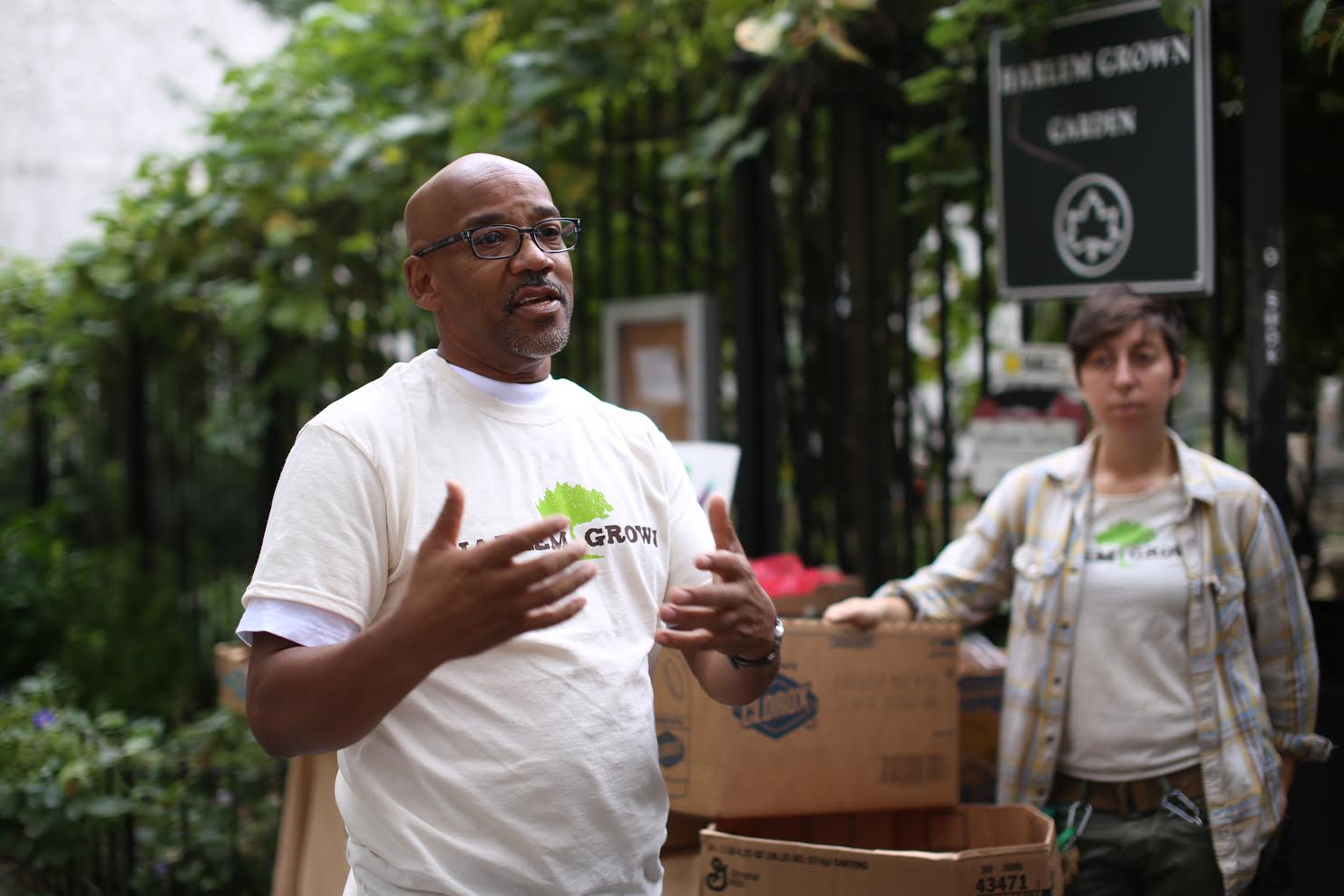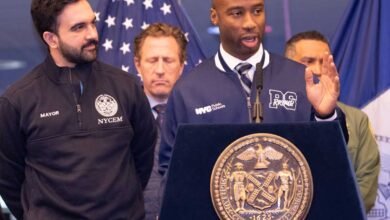Harlem Grown gives back to neighborhood youth by rooting in community’s needs


Tony Hillery working in the Harlem Grown urban farm greenhouse.
Photo courtesy of Harlem Grown
To Tony Hillery, New York City begins in the neighborhoods he has chosen to serve. During a long career in business, he never imagined that a personal pivot would lead him to change countless lives.
“A change of life, I don’t know. During the financial crisis, I was like a lot of other people, getting impacted in business and losing business and clients. I was sitting right where I’m sitting right now, getting depressed, and I was reading about schools and underfunded schools in New York City,” said Hillery. ‘And that word, that phrase, just didn’t resonate. I couldn’t understand. I mean, we’re in the richest city in the world, and how do you have an underfunded school, right?”
That confusion and frustration became a turning point. Hillery traveled uptown to Harlem, volunteered at a local school, and witnessed inequity firsthand. “I met kids who changed my life, and 14 years later, I’m still there,” he says.
His work would eventually evolve into Harlem Grown, a youth development organization rooted in the community’s real needs.
“It’s always hard in underserved communities, and I don’t want to make light of that. But you see the headlines, you know budget cuts, cut downs, all of that. When you’re on the ground in these communities, it’s just another day, man, it’s just another day. And it’s really sad, because it’s children that we’re talking about,” said Hillery.
Hillery’s approach combines hands-on experience with careful listening. He and his team grow food with local students and distribute it in ways that respect the dignity of the community. “We don’t give people just a bag and say, ‘Here.’ You come to our farm stands, you would think you were shopping at Whole Foods. We have the big baskets that are constantly refilled. People come and they can take what they know, not take a bag and go home and throw away half the stuff because they’re unfamiliar with it. Everybody gets a smile. Everybody gets if you have an issue, we have all of our signages and recipes in three languages.”

Hillery’s work extends beyond nutrition. He integrates mentorship, guidance, and community engagement into every initiative. “Food is vital to what we do. You can’t raise a healthy child without healthy, basic nutritional needs, and not just nutrition, but mentoring, guidance structures, all of that. But I tell you, leading into COVID, that was the pivotal moment for us… So we pivoted, and we created a program we called Harlem Grown, helping Harlem, where we opened a few Harlem restaurants and we bought tens of thousands of hot, nutritious meals that we would bring into the families. I think that really cemented our position in Harlem.”
He emphasizes the importance of teaching children about food while empowering the community.“Oh, man, I get a thousand a day, bro, and I’m not gonna lie. This is the most satisfying work someone can do—working with elementary-age children who’ve never seen something grow from the ground or watched food scraps turn into soil. The look of awe and amazement in a child’s face, hanging on to every word you say, is priceless.”
For Hillery, Thanksgiving represents the pinnacle of this work: a day when community, dignity, and generosity converge. “Brother, it’s dignity. This is the one holiday we don’t have to talk about politics nor religion. This is about sitting down with people that you love with a meal, a basic meal sitting at a table together with your loved ones. That’s what this is about. And everybody in this country, since it is an American holiday, everyone should have the ability to do just that in spite of anything.”
Even as Harlem Grown has grown, Hillery remains grounded in the everyday realities of food insecurity. “It’s everywhere. It’s not Harlem, it’s poverty, and that’s what we have to fight. Food is abundant. It’s everywhere. It’s free to grow. It doesn’t take anything to produce it. So why not do just that?”
Asked to sum up the essence of his work, he points to humility, love, and community: “They teach me humility and grace, what it is to serve. Man, it’s a beautiful thing. You’ve got to come see it one of these days.”




